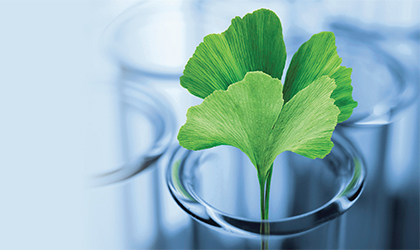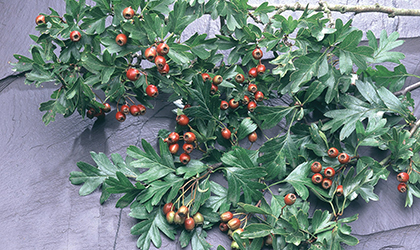
Have you ever made a significant lifestyle change only to give it up thinking, “it’s too late” or “I’m too old”? It’s time to debunk this myth. Don’t let age get in the way of making positive improvements to your life. In truth, it’s never too late to adopt healthful habits to nourish your body and mind and complement the ageing process.
Whether you like it or not, getting older involves change. Your bones, skin and even brain will start to behave differently. But these changes don’t have to slow you down. On the contrary, many people claim happiness only ripens with age. While maintaining your physical health with diet and regular exercise is vital, nurturing your emotional health should also take pride of place. One key ingredient to fulfilment and longevity is social connection. Unlike many cultures, multigenerational households are few and far between in the UK. And with rates of loneliness steadily increasing amongst this cohort, it’s more pressing than ever to stay connected. Trying to live diversely and abundantly can also be hugely energising. Now that work’s off the agenda, give time to whatever sparks joy in your life. Above all, savour each day. Reap the fruits of your long life. And, of course, bask in good health and happiness.
Balanced Eating As You Age
Throughout life, your diet should be one of variety and balance, crammed with fruit, vegetables, protein and healthy fats. After the age of 75, however, some key nutritional differences come to the fore. You also need to think about weight. For some older people, excess weight isn’t the problem; it’s weight loss. The take-home message is this: no matter your health status, there’s still plenty you can do to improve your wellbeing through good nutrition.
Focus On Plants
It’s time to bang the drum for plants once more. A diet rich in fruit and vegetables is one of the best interventions to safeguard health as you age. Interestingly, the Blue Zones of the world – that is, regions where people live much longer than average – owe their longevity to eating a diet of 95% plants.
Fill Up On Fibre
Also known as roughage, fibre helps to keep your digestive system well oiled, especially in your senior years when it can become sluggish. Ensure that your diet is brimming with a wide range of fibre-rich foods, like oats, fruits, vegetables and whole grains.
Maintain a Healthy Weight
Due to a loss of appetite or illness, keeping weight up can be difficult for some older people. But maintaining a healthy body mass index (BMI) is critically important for your bone density and immunity. If you’ve unintentionally lost weight, try packing nourishing, yet high-calorie ingredients into your diet. Peanut butter, dried fruit, avocado, cheese and full-fat milk are great energy-dense choices.
Power Up With Protein
A key building block of muscles, cells, tissues, hormones and antibodies, protein is central to health. Yet, as you age, so too does your strength and muscle mass. Increasing your protein intake may help to minimise the muscle loss associated with ageing. Nutritious sources of protein include red meat, poultry, oily fish, seafood, and dairy products, like yoghurt, milk and cheese. If you follow a mainly plant-based diet, beans, tofu, quinoa, nuts and seeds are protein-packed options..
Lifestyle Tips And Age-Related Health Considerations
Keep Moving
Sure, your knees may not be what they once were. But there’s still plenty of ways to move your body and feel invigorated as you get older. Thanks to being kind on joints, swimming and walking are great activities. There’s also much to be said about the healing powers of dancing in your old age. Beyond improving flexibility, balance and cardiovascular health, dancing is a tonic for social connection and cognitive fitness.
Maintain Good Sleep Habits
Sure, your knees may not be what they once were. But there’s still plenty of ways to move your body and feel invigorated as you get older. Thanks to being kind on joints, swimming and walking are great activities. There’s also much to be said about the healing powers of dancing in your old age. Beyond improving flexibility, balance and cardiovascular health, dancing is a tonic for social connection and cognitive fitness.
Engage Your Brain
Don’t let your active brain go into retirement! Like your body, your brain needs regular injections of exercise to keep it healthy and vital. Fostering connections, engaging in new experiences and problem solving will help to sharpen the corners of your grey matter. Most importantly, seek out activities that inspire you and bring joy. Perhaps you’ve always wanted to learn Portuguese, read about quantum physics or perfect the perfect sourdough loaf. Now’s the time to lean into your curiosity.
Connect More
Human beings are a social species by nature; we’re designed to connect. As you age, socialisation remains an important pillar of health. Maintaining and cultivating social connections will nourish your emotional wellbeing, as well as promote a sense of belonging. Scheduling time to meet with friends and family, making new connections by joining a community group, and scoping out volunteering opportunities are brilliant ways to flex your social muscle.
Keep Life Full and Varied
While, of course, you should allow yourself to take life a little slower now, empirical data also reports that increasing your energy expenditure may lead to longer life expectancy. In a study of a group of 70 year olds, researchers found those who expended the most energy in their daily activities – approximately a 287 kcal/day increase in activity – reduced their mortality risk by 32%.(1) Make a conscious effort to live a varied, full and active life. Don’t be afraid to try new things, either.
Vitamins & Supplements
Calcium
Due to decreased overall calorie intake – due to reduced appetite or illness – there can be a drop in dietary calcium. The kidneys also find it harder to retain calcium, leading to an increased loss of calcium in the urine. To support your skeletal health as you age, consider a specially formulated bone health multivitamin or mineral that delivers around 200-500mg of calcium.
Vitamin D
Unless you’ve chosen to retire in sunnier climes, ageing can coincide with less frequent sunlight exposure. And since vitamin D is synthesised when direct sunlight hits the skin, patchy sun exposure may lead to poor vitamin D status. Notably, your skin’s ability to synthesise vitamin D decreases as you get older too. And if vitamin D levels are low, calcium absorption may be affected. For these reasons, safeguarding your vitamin D reserves is imperative at this stage. That’s why the Department of Health calls for all adults over 65 years to take 10μg vitamin D throughout the year.
CoQ10
CoQ10 is found in the mitochondria of your cells, where glucose is converted into the energy your body needs to power its metabolism and drive muscles. Hence why the heart contains the highest concentrations of CoQ10. Interestingly, empirical data reports cholesterol-lowering medication may deplete the body of CoQ10. (2) What’s more, the body’s ability to produce CoQ10 also declines with age, so you may consider adding this supplement to your daily regime.
Vitamin K2
Besides aiding the proper utilisation of calcium and contributing to the maintenance of bone health, vitamin K2 also helps to activate certain vitamin K-dependent proteins. Alarmingly, it’s widely touted around 98% of the population are short in this essential nutrient! To support bones, aim for 90μg of vitamin K daily in a bone health formula or a single supplement.
Magnesium
Aiding the proper absorption of calcium and converting vitamin D into its active form, magnesium can’t be left out of the discussions on bone health. Besides bones, this powerful mineral also contributes to normal teeth, protein synthesis and psychological function. Crucially, magnesium supports the reduction of tiredness and fatigue, helping to complement the activities and adventures of your golden years.
Vitamin C
Vitamin C has earned a reputation as one of the most important nutrients for good reason. An antioxidant, vitamin C contributes to the protection of cells from oxidative stress. It also supports normal collagen production and cartilage function for healthy skin and gums. What vitamin C is most famous for, however, is lending support to our immune system. With this in mind, ensure a plentiful intake of vitamin C throughout your senior years.
N-Acetyl Cysteine
N-Acetyl Cysteine (NAC) is the stable form of the amino acid, cysteine. Unlike cysteine, however, – which can naturally be found in chicken, eggs and red peppers – you can’t obtain NAC from dietary sources. Notably, the body converts NAC into the powerful nutrient glutathione. Glutathione is one of the most critical antioxidants in the human body, helping to neutralise highly reactive free radicals that, in excess, can damage tissues and cells.
Pea protein
Protein powder isn’t just the preserve of exercise buffs. As you get older, supplementing with protein may be an effective way to rebuild and maintain muscle loss associated with ageing, especially if you’re recovering from a recent illness or a long hospital stay. The amino acid profile of pea protein is excellent. It’s rich in ‘branched chain amino acids’ and more abundant in arginine than any other commercially available protein. Pea protein is perfect in soups, stews, or blended into a smoothie.
Arginine
An impressive amino acid, arginine helps to produce nitric oxide (NO) in the body – a substance that relaxes blood vessels, as well as affecting many other areas of health. Most importantly, the vasodilatory effect of arginine plays a key role in the maintenance of healthy blood flow around the body and, crucially, is a key determinant of cardiovascular performance.
Vitamin B12
Vitamin B12 is essential for countless processes in the body. It’s critically important for normal red blood cell formation, immunity and – like most B vitamins – also contributes to normal energy metabolism. As you age, your body’s ability to sufficiently absorb vitamin B12 may decline. That’s why maintaining a healthy dietary intake is vital, with supplementation offering a convenient way to meet your daily needs.
References:
-
Manini TM. Energy expenditure and aging. Ageing Res Rev. 2010;9(1):1-11.
-
Statin-Associated Cardiomyopathy Responds to Statin Withdrawal and Administration of Coenzyme Q10. The Permanente Journal. 2019;
Related Posts
Disclaimer: The information presented by Nature's Best is for informational purposes only. It is based on scientific studies (human, animal, or in vitro), clinical experience, or traditional usage as cited in each article. The results reported may not necessarily occur in all individuals. Self-treatment is not recommended for life-threatening conditions that require medical treatment under a doctor's care. For many of the conditions discussed, treatment with prescription or over the counter medication is also available. Consult your doctor, practitioner, and/or pharmacist for any health problem and before using any supplements or before making any changes in prescribed medications.

Keri
Keri Filtness has worked in the Nutrition Industry for 19 years. She is regularly called upon for her professional comments on health and nutrition related news. Her opinions have been featured by BBC3, Prima, Vitality, The Mirror, Woman’s Own and Cycling Weekly, amongst others. She has also worked one to one with journalists, analysing their diets and health concerns and recommending changes and additions, where appropriate.
View More



